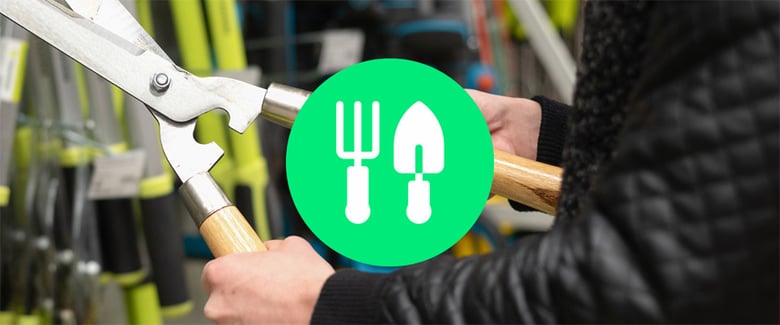Garden Tools and Accessories Inspections.
From the ground up, we ensure quality: garden tools inspection experts!Pre-shipment inspection of garden tools and accessories is a crucial step in ensuring the quality and reliability of the products you receive. This inspection process involves a trained inspector carefully examining the materials, construction, and overall workmanship of the items before they are shipped. By conducting these inspections, you can rest assured that the tools and accessories meet or exceed industry standards, are free from defects or imperfections, and comply with all relevant regulations. This quality control measure not only protects your investment but also guarantees customer satisfaction by delivering high-quality products that are built to withstand the demands of gardening tasks.
When it comes to gardening, having the right tools and accessories is paramount. Whether you are a professional landscaper or an avid gardener, the quality and reliability of your garden tools can make all the difference. To ensure that you receive top-notch products, pre-shipment inspection plays a vital role.
Why do you need a pre-shipment inspection?
Garden tools and accessories are subjected to rigorous use and exposure to various elements. As a result, they must meet specific quality standards to withstand the demands of gardening tasks. A pre-shipment inspection ensures that the tools you receive are of the highest quality, manufactured to meet or exceed industry standards. An inspector will carefully assess the materials used, the construction, and the overall workmanship to ensure that the products are reliable, durable, and fit for purpose.
Defect Detection:
Even the most reputable manufacturers can occasionally produce defective products. Identifying and addressing these issues before the items are shipped is essential. An inspector's trained eye can spot any defects or imperfections in the garden tools and accessories, such as manufacturing flaws, damage during transportation, or packaging errors. By catching these issues early on, you can avoid receiving subpar products, reducing the risk of costly returns or customer dissatisfaction.
Compliance with Regulations:
Different regions have specific regulations and safety standards governing the import and sale of garden tools and accessories. An inspector with knowledge of these regulations ensures that the products you receive comply with all the necessary legal requirements. This includes examining the product labels, checking for proper certifications, and verifying that the items do not pose any health or safety risks. By adhering to these regulations, you can safeguard your business from potential legal complications and protect your customers' well-being.
As a business owner or a consumer, nothing is more important than customer satisfaction. By conducting pre-shipment inspections, you demonstrate your commitment to delivering high-quality garden tools and accessories. By ensuring that the products meet your customer's expectations, you build trust, enhance your brand reputation, and promote repeat business. An inspector acts as your advocate, ensuring that the items you receive are up to par, saving you from the hassle of dealing with disappointed customers or negative reviews.
An inspector conducting a pre-shipment inspection of garden tools and accessories may employ various methods to thoroughly assess the quality and condition of the products. Here is a list of common methods used by inspectors:
- Visual Inspection: The inspector visually examines each item to check for any visible defects, such as scratches, dents, or manufacturing flaws. They assess the overall appearance and finish of the tools and accessories.
- Functional Testing: The inspector tests the functionality of the tools, ensuring that they perform their intended tasks effectively. For example, they may test the cutting ability of shears, the movement of hinges on a rake, or the operation of watering mechanisms.
- Material Analysis: The inspector assesses the materials used in the construction of the garden tools and accessories. They verify the quality of metals, plastics, handles, and other components to ensure they meet the required standards and are suitable for their intended purpose.
- Measurement Verification: The inspector checks the dimensions and measurements of the tools, comparing them to the specifications provided by the manufacturer. This ensures that the products meet the required size and fit standards.
- Packaging Inspection: The inspector examines the packaging to ensure that it is intact and adequately protects the products during transportation. They check for any signs of damage, appropriate labelling, and proper packaging materials.
- Safety Compliance: The inspector verifies that the garden tools and accessories adhere to safety regulations and standards. They check for safety features, warning labels, and any potential hazards that may pose risks to users.
- Documentation Review: The inspector reviews the necessary documentation, including product certificates, test reports, and compliance records. This helps ensure that the products have undergone proper testing and certification processes.
- Sample Testing: In some cases, the inspector may take samples from the batch for further laboratory testing to assess specific parameters such as material strength, corrosion resistance, or chemical composition.
These methods, combined with the inspector's expertise and experience, provide a comprehensive evaluation of the garden tools and accessories, ensuring that they meet the required quality standards before they are shipped to the customer.

Why Choose Us
Global network of qualified inspectors
Only professional outfits are registered on our platform. Vetted and screened, so you don't get any nasty surprises when selecting your quality control provider!

Remote (Guided) inspections
Our inspectors are capable of receiving remote instruction, and guidance during specialized inspections. Ensuring that we meet required specifications.

You control the timeline
You have control over the timeline including the quote deadline, the inspection date and the date of the report. Allowing your inspections to seamlessly integrate into your logistics.




